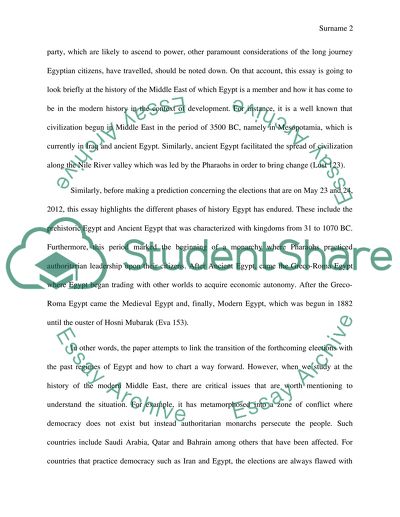Cite this document
(“Egyptian Elections Essay Example | Topics and Well Written Essays - 1500 words”, n.d.)
Retrieved from https://studentshare.org/history/1446686-egyptian-elections
Retrieved from https://studentshare.org/history/1446686-egyptian-elections
(Egyptian Elections Essay Example | Topics and Well Written Essays - 1500 Words)
https://studentshare.org/history/1446686-egyptian-elections.
https://studentshare.org/history/1446686-egyptian-elections.
“Egyptian Elections Essay Example | Topics and Well Written Essays - 1500 Words”, n.d. https://studentshare.org/history/1446686-egyptian-elections.


